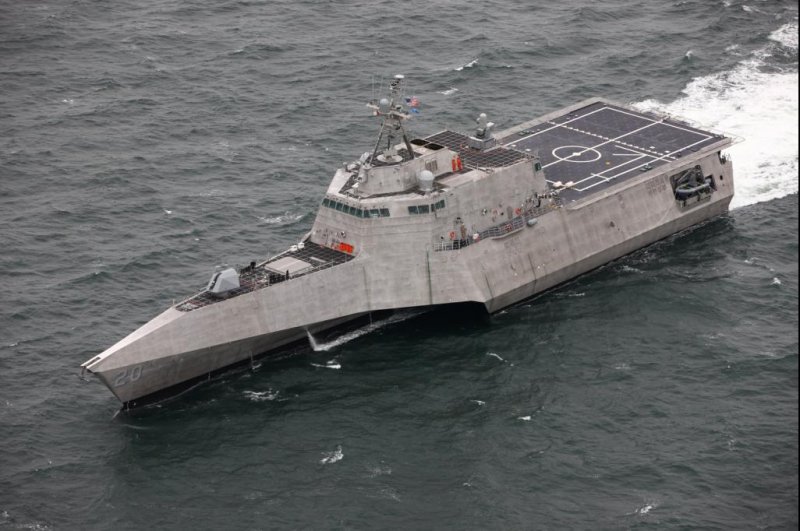The Pentagon on Monday issued a contract to Raytheon for work to reduce the weight of part the Littoral Combat Ship's anti-submarine warfare mission package. Pictured, the LCS USS Cincinnati conducts acceptance trials in February. Photo by Cmdr. Patrick Evans/U.S. Navy
Aug. 6 (UPI) -- Raytheon has been contracted by the U.S. Navy for a variety of changes on mission modules for the littoral combat ship, including testing, training and alterations to improve use.
The $8.6 million contract, announced Monday by the Department of Defense, covers services and deliverables to achieve weight reduction on the Escort Mission Module towed systems. The deal also covers associated dry-end components for the LCS's Anti-Submarine Warfare Mission Package.
The LCS, a two-variant class of ship meant to operate in near-shore areas as well as it can in open seas, is designed as a modular vessel that can be reconfigured for specific missions. This is accomplished by swapping out one of three overall mission packages designed for surface warfare, mine countermeasures or anti-submarine warfare.
The new contract focuses on the anti-submarine warfare mission package, which includes the ability to offer high value unit escorts, in addition to its ability to provide direct support to most types of naval strike group.
The ASW was delivered to the Navy last December, a delivery that included the dual-mode array transmitter mission system -- a towed-array sonar that can provide better detection at variable depths than radars mounted on the ship's hull -- which the Navy says "will provide revolutionary capabilities to the fleet."
Under the new deal, the Navy has authorized 35,000 work hours and direct costs to cover fabrication, testing and delivery of the systems, including system and shipboard integration, other changes and support of government-led testing and training.
Work under the contract, expected to run through December 2021, will be conducted mostly at contractor and Pentagon facilities in Portsmouth, R.I., with about 10 percent of the work done in Ft. Pierce, Fla., and San Diego, Calif.















